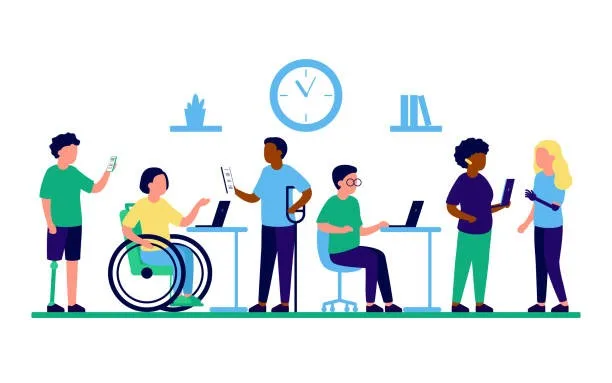The Business Case for Disability Inclusion: Unlocking Untapped Potential
In the world of business, staying competitive means staying innovative—and true innovation stems from diversity. But when we talk about diversity, one group often gets overlooked: people with disabilities. This oversight isn’t just a missed opportunity for inclusivity; it’s a missed opportunity for business growth.
Disability inclusion is about more than just doing the right thing. It’s about recognizing and unlocking a wealth of untapped potential that can transform workplaces, drive profitability, and build lasting customer loyalty. Let’s explore why disability inclusion isn’t just a moral imperative but a strategic business advantage.
The Untapped Talent Pool
Did you know that approximately 26% of adults in the United States live with some form of disability? That’s over 60 million people—a vast group of talented, capable individuals who are often excluded from traditional hiring pipelines.
What many businesses don’t realize is that employees with disabilities bring unique strengths to the table. Their experiences foster adaptability, resilience, and problem-solving skills—qualities that any employer would value. Inclusive hiring isn’t just about filling a quota; it’s about enriching your team with perspectives that can drive creativity and innovation.
When companies invest in inclusive hiring practices, they tap into this talent pool and position themselves as leaders in a competitive job market.
A Better Workplace for Everyone
Creating a workplace that’s inclusive of employees with disabilities benefits more than just those employees—it creates a ripple effect. When you make accommodations, like flexible schedules or assistive technologies, you’re often improving conditions for your entire workforce.
Think about it: who wouldn’t benefit from more accessible technology or a culture that values collaboration and empathy? Inclusive workplaces foster a sense of belonging, and when employees feel valued, morale and productivity soar. In fact, companies with strong diversity practices see higher employee retention rates, reducing costly turnover.
Reaching an Overlooked Market
Here’s another reason to prioritize disability inclusion: your customers. Globally, people with disabilities represent over one billion individuals, with an estimated spending power of $1.9 trillion. In the U.S., that number is a staggering $490 billion annually.
By ensuring your products, services, and spaces are accessible, you’re not only meeting a legal obligation—you’re opening the door to a massive and loyal customer base. Accessibility is a powerful way to show your brand’s commitment to equity and inclusion, which resonates deeply with today’s socially conscious consumers.
Innovation Through Inclusion
Diversity drives innovation, and disability inclusion is no exception. Employees with disabilities often approach challenges in ways others might not, offering fresh perspectives and creative solutions.
Consider some of the technologies we rely on today, like voice recognition software and curb cuts on sidewalks. These innovations were initially designed to improve accessibility but have since benefited the broader population. Disability inclusion has the power to spark ideas that lead to groundbreaking advances—ideas that might otherwise be overlooked.
Taking the First Steps
So, how can businesses start embracing disability inclusion? It’s simpler than you might think. Start by reviewing your hiring practices: are job postings accessible? Are you partnering with organizations that connect employers with talented individuals with disabilities?
Next, invest in training. Educating your leadership and teams about disability awareness and inclusion creates a more informed and supportive workplace. Don’t forget to audit your physical and digital spaces for accessibility—making changes here can have a profound impact. Finally, be proactive about accommodations. A small adjustment, like providing assistive tools or offering remote work options, can make a world of difference.
A Win-Win Opportunity
Disability inclusion is good for employees, good for customers, and good for business. By opening your doors to people with disabilities, you’re not just meeting a moral obligation—you’re positioning your company for success in an increasingly diverse and inclusive world.
Now is the time to act. The question is, will your company rise to the occasion and unlock the potential that disability inclusion offers?

